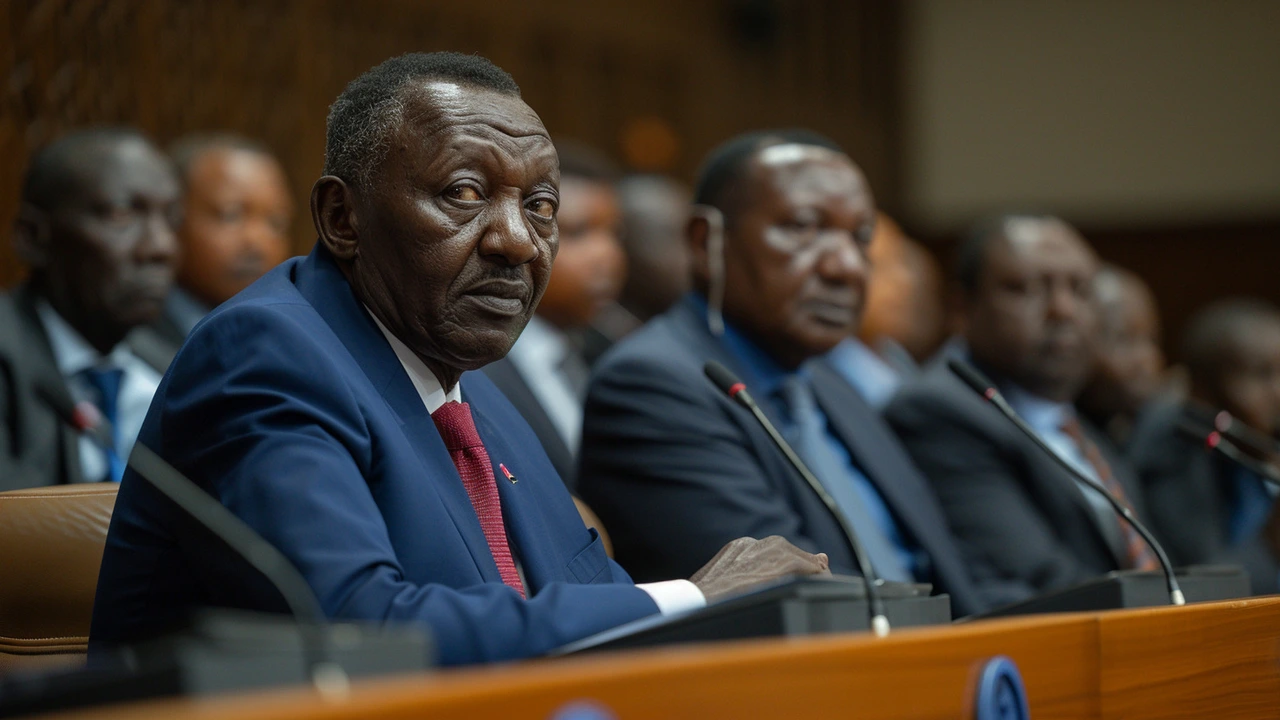President William Ruto's participation in the 2023 Korea-Africa Summit held in Busan, South Korea, marked a pivotal moment for Africa’s geopolitical and economic strategy. In a compelling address, Ruto underscored the critical importance of forging new, strategic partnerships to harness Africa's incredible potential. As he spoke, the room was filled with delegates who understood that this was more than just a summit; it was a call to action for two regions with historically deep connections to come together in meaningful collaboration.
Opening his speech, President Ruto highlighted the profound opportunities that lie in deepening economic ties between Africa and Korea. He pointed out that Africa is a continent brimming with natural resources, from minerals to fertile lands, while Korea stands at the forefront of technological innovation. Ruto argued that these complementary strengths should be the foundation of an enhanced economic partnership.
Ruto delved into specific areas where such cooperation could be game-changing, mentioning infrastructure development, manufacturing, and renewable energy as key sectors. For instance, he noted how Africa’s infrastructure needs are enormous and growing. Roads, ports, and railways remain underfunded and underdeveloped in many parts of the continent. By leveraging Korean expertise in construction and technological innovations, African nations could modernize their infrastructure at an unprecedented pace. This, in turn, would catalyze economic activities and improve the quality of life for millions of Africans.
Renewable Energy Collaboration
Another focal point of President Ruto's address was renewable energy. Africa, he noted, has abundant renewable energy sources, from solar to wind to hydroelectric power. Yet, the continent still grapples with inconsistent energy supply and frequent power outages, which stifle economic growth and development. By entering into strategic partnerships with Korea, a leader in renewable energy technologies, Africa could harness its renewable resources more efficiently. This not only supports sustainable development but also aligns with global efforts to combat climate change.
Manufacturing Growth
Manufacturing was another sector President Ruto was keen to spotlight. Many African countries rely heavily on the export of raw materials and have minimal manufacturing capabilities. Ruto argued that with the advanced manufacturing techniques and technologies of Korea, Africa could significantly boost its manufacturing capacity. This would create jobs, spur economic growth, and reduce the continent's dependency on raw materials exports.
President Ruto also noted the historical ties between Korea and Africa. These connections trace back to the 1960s when many African nations were striving for independence. Korea offered crucial support during these times of transition, which has not been forgotten. Today, these ties offer a solid foundation for renewed collaboration that can address modern challenges.
One of the central themes of Ruto's speech was the importance of regional integration and intra-African trade. He emphasized that while partnerships with Korea are crucial, African nations must also work closely with one another to achieve long-term economic prosperity and stability. The African Continental Free Trade Area (AfCFTA), which seeks to create a single continental market, is a significant step in this direction. By eliminating trade barriers and improving economic integration, African nations can create a more substantial and competitive economic bloc.
During the summit, President Ruto held bilateral talks with South Korean President Yoon Suk-yeol. Their discussions were wide-ranging, covering topics from enhancing trade and investment to encouraging cultural exchanges between the two countries. Both leaders expressed optimism about the future of Korea-Africa relations and committed to taking concrete steps to strengthen these ties.
The significance of the 2023 Korea-Africa Summit cannot be understated. It offered a platform for dialogue and fostered partnerships that are likely to influence the socio-economic landscape of Africa for decades to come. By advocating for strategic partnerships, President Ruto positioned Africa as a proactive player on the global stage, ready to collaborate and innovate for a brighter future.
In conclusion, President Ruto's call to strengthen economic ties and explore new avenues of cooperation with Korea is a strategic move aimed at unlocking Africa’s potential. With a focus on infrastructure development, renewable energy, and manufacturing, these partnerships hold the promise of driving sustainable growth and improving living standards across the continent. The historical connections between Korea and Africa, combined with their complementary strengths, make this a partnership with immense potential. As both regions move forward, the benefits of such collaboration could be far-reaching, fostering a new era of economic prosperity and stability.

Write a comment